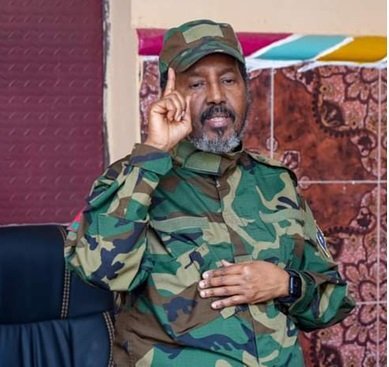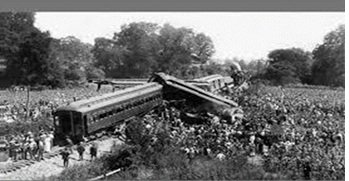By Dr. Mursal M. Khaliif, member of SFP
Recent events in Somalia have raised the real prospect of an Al Shabaab revival, to the point that the fundamentalist, insurgent group could overtake the government. This would bring ruin to the country and endanger the entire Horn of Africa region.
The ongoing battle between Puntland Security Forces and ISIS terrorists in the Eastern region of the country, the failure of the much touted Al-Shabab offensive in the center, the Federal Government’s politicization of the National Army in it’s political dispute with the southern Jubaland State and the unilaterally controversial electoral model perpetuated by President Hassan Sheikh Mohamud (HSM) are all individually worrisome signs. Together they represent an oncoming trainwreck .
In early December, the President of Somalia deployed the National Army aganist its own troops, airlifting soldiers from the capital, Mogadishu, hundreds of miles south to Raskamboni with the sole purpose of fighting Jubaland Security Forces and ousting the recently elected regional President, Ahmed Madobe. National and state level forces, trained by the international community to work together against terrorists, ended up fighting and killing each other.
To witness the brainpower, money, and other efforts the Federal government spent on the offensive against Jubaland State, whilst Al-Shabab freely operates less than 50 kilometers away from Presidential Palace in Mogadishu, is truly mind boggling.
The seeds for the December fight were planted two years ago when HSM declared a national offensive against Al-Shabab. The nation was united and he international community was highly supportive, even though failures in the conduct of the offensive were glaringly visible. I even wrote an article pleading with the international community to fully support President HSM’s administration in the war on terror.
In the midst of the offensive came HSM’s re-election ambitions. Unilateral changes to the provisional constitution and granting unconstitutional extensions to four Federal Member States, whose terms expired or about to expire, caused political fractures the likes of which Somalia has not seen in recent history. All the while HSM spoke about starting Operation Black Lion, Phase Two of the offensive against Al-Shabaab. Growing discontent with the conduct of Phase One offensive, rampant corruption in the Federal Government and controversial electoral changes to the constitution brought public confidence to a new low. many openly started to question the President’s sincerity. With a backdrop of rampant corruption perpetrated by close allies of HSM engulfing all aspects of Federal Government’s institutions, the failure of the war against Al-Shabab and controversial electoral agenda only served as the proverbial straw that broke the camel’s back.
With the national unity of purpose in defeating Al-Shabaab squandered through corruption and nepotism, HSM is now a lame-duck leader entering his final year in office without much success to show for. Worse, what awaits him are allegations of unprecedented corruption, a nation divided into clans, a failed war against terrorists, a political opposition united in ousting him and an international community sickened by his kleptocratic and kakistocratic administration.
The genesis of transformation from early last year, when it seemed that the terrorist group were in their final throes, can be attributed to nepotism, corruption and the unrealistic electoral ambitions of HSM for a third term in office. Less than two years ago, a successful community mobilization coupled with a national army offensive has made the entire nation hopeful that we would soon see the end of the terrorist outfit in Somalia. Those hopes were soon dashed by HSM’s desire to enrich himself and his allies through various schemes, and the controversial design of an electoral model faltering the political unity of a fragile clan based power sharing system.
The three pillars keeping the peace and allowing the nascent, but vulnerable, democracy in Somalia to flourish over the last two decades were: predictable electoral calendar, broad political consensus on electoral model and peaceful transfer of power. The highly controversial, and now failed, NCC (National Consultative Council) agreement in May 2023 was the first blow to the electoral calendar as it granted an unconstitutional extension to FMSs. This was viewed by many as a prelude to HSM’s willingness to move the goalpost for Federal elections in which he will surely contest for a third term. Secondly, nitpicking constitutional reform with a laser focus on chapters mostly impacting elections in a highly controversial manner eroded both credibility and confidence of the political class. Thirdly, willingness to use the national army to settle an electoral dispute with Jubaland, while the terrorists roam in large swaths of the country, only confirmed suspicions that HSM will stop at nothing in order to implement his controversial electoral process designed with the single goal of his re-election.
To lose overwhelming national unity in the fight against Al-Shabaab terrorists in such a short period of time could only be characterized as political malpractice of epic proportions. However, the impact of HSM’s blunders will not be confined to the borders within Somalia. Resurgent Al-Shabaab in South-Central and ISIS’s growing presence in Puntland State are very likely to wreak havoc in the entire East Africa region and beyond at a time when the international community is least prepared for their global impact on security.

With the evident internal dysfunction of HSM’s administration, growing divisions between HSM and key Federal Member States and the countless violent inter-clan conflicts raging in multiple regions, the situation in Somalia is extremely ripe for spoilers, opportunists and proxy actors such as the Houthis in Yemen, or other Iranian backed armed groups to join forces with Al-Shabab and ISIS in order to gain an increased foothold in parts of Somalia, much to the detriment of regional and global security. .
As of today, armed conflict broke down in Baardheere district (the second most populous town in Jubaland State) between Somali National Army and Jubaland Security Forces. This seems to be a continuation of the electoral violence brought to us by the HSM regime at Raskamboni town in early December. Again, the opposing forces are the ones supposed to be fighting together in order to degrade and defeat the terrorists in Somalia.
Now, it’s evident that the metaphorical train, which HSM frequently used as a reference for the political inclusivity of his administration has gone off the rails, though still moving at full speed. Getting the proverbial train back on the tracks will only take an immense pressure and extensive intervention by the international community which continues to spend in both blood and treasure on the two decades long nation building endeavor of Somalia. However, as existing and new global crisis emerge, potential fatigue of the international community with Somalia is a real possibility. Furthermore, the Federal Parliament has a constitutional duty to exercise it’s oversight and accountability role. At the moment, most appropriate venue is for the Lower House to table a motion of no confidence against the prime minister in order to hit the reset button and salvage a minimum level of democratic governance.
The reality of profound political disunity, if coupled with international complacency to leave Somalis to sort out their affairs amongst themselves, is highly likely to provide ample opportunity for Al-Shabab to gain sympathy, territory and local support in many regions. The true costs to both Somalia and the region are immensely high. If the International community fails to support the Somali public and political opposition, including Federal Member States such as Jubaland and Puntland, the opportunity to realign the train on the tracks shall forever be lost.
Only unified political stakeholders, committed to uniting the Somali people, can defeat the terrorist groups currently operating in Somalia, or stop new terrorists with the ambition to set up shop here. Divided political stakeholders only yields masses apathetic to secular nation building efforts and rural communities focused on interclan grievances. Both classic scenarios to be exploited by extremist clerics and terrorist groups. The grim scenario Somalia is headed to, under HSM, is unfortunately more of the latter.
Dr. Mursal M. Khaliif
Email: Drmursalkhaliif@parliament.gov.so
———
Dr. Mursal is a member of Somalia’s Federal Parliament, serving as the Chairman of The Bicameral Parliamentary Committee on Friendship with the United States, and a member of The Parliamentary National Defense Committee.


Leave a Reply